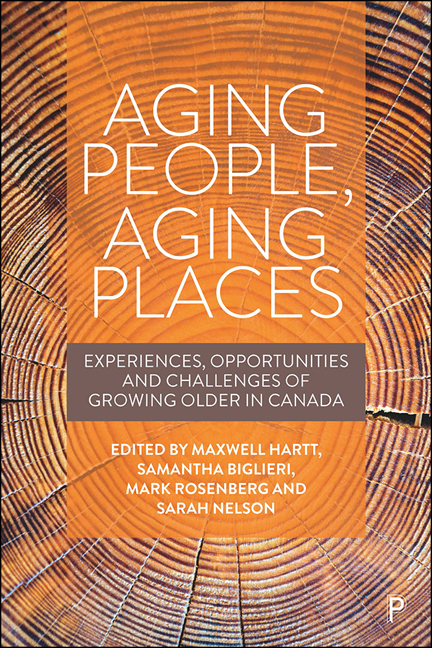14 - Supports and limitations of aging in a rural place for women aged 85 and older
Published online by Cambridge University Press: 18 December 2021
Summary
Women over the age of 85, living in a rural environment, such as that of Atlantic Canada, are often considered to be an invisible cohort. This invisibility is primarily due to social isolation which occurs when older adults lose members of their social networks, including friends and family. As suggested by Walkner and colleagues (2018) this issue is compounded for those living in rural areas since geographical distance from others and lower populations pose additional challenges to daily social interaction. This is significant for elderly women, as they generally outlive their male partners, and staying connected to familiar surroundings is crucial to positive aging (Loe, 2010). For example, in Prince Edward Island (PEI), women account for 67% of people who are 85 and older (Statistics Canada, 2017b). Between 2011 and 2016, the number of Canadians aged 85 and older grew by 19%, which is nearly four times the rate for the overall Canadian population (Statistics Canada, 2017a). Furthermore, the Canadian population aged 85 and older is expected to triple when baby boomers begin to reach this age group in 2031 (Statistics Canada, 2012).
Considering this shift in population distribution, it is important to recognize that women comprise a larger proportion of older adults because they are more likely to live longer. This imbalance will have serious sociodemographic impacts as women will have higher levels of frailty, depression, and widowhood while having less education (Weir, 2014; Strömquist, 2015). Recognizing the importance of societal awareness of this cohort is imperative as women are twice as likely to be poor as a result of having lower incomes from pensions, which can be attributed to interruptions in their careers to take care of children and other family members (Silver, 2003; Kim et al, 2013; Weir, 2014; Strömquist, 2015; Statistics Canada, 2017a).
Currently, research related to older women tends to focus on urban areas, but we cannot ignore older women who live in rural places. Rural communities, compared to urban ones, tend to be poorer, lacking in infrastructure, and have fewer social and health services (Hanlon and Halseth, 2005; Hanlon et al, 2007). Resource limitations and gaps between the vulnerable group discourse (older women as frail, isolated, unable to cope) and the realities of older women's lives (capabilities and capacities) have been documented in the literature (Jacka, 2014), but positive features have also been identified.
- Type
- Chapter
- Information
- Aging People, Aging PlacesExperiences, Opportunities and Challenges of Growing Older in Canada, pp. 171 - 188Publisher: Bristol University PressPrint publication year: 2021



